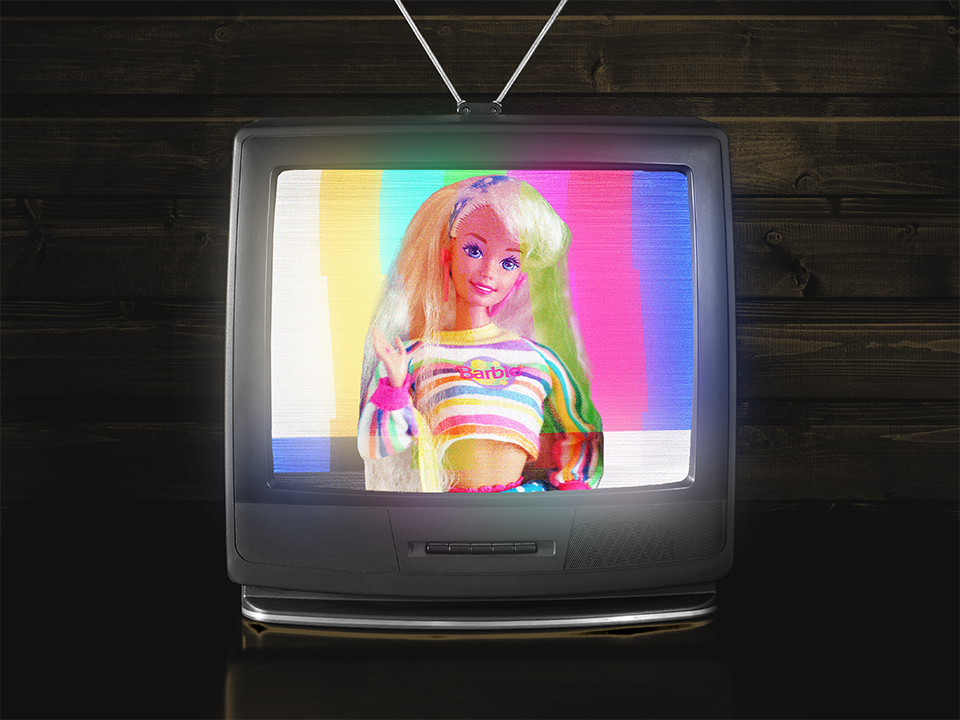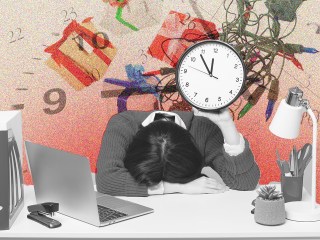Why Are We All So Damn Nostalgic Lately?
Live for throwback movies and music? There’s a reason for that.
If it feels like you’re getting hit with nostalgic blasts from the past everywhere you look, you are correct. There’s the Barbie movie, Zoey 102, the seemingly random addition of Suits to Netflix this summer, pretty much everything about the Eras Tour, even (*shudder*) low-rise jeans.
To put it simply, nostalgia is a sentimental longing for the past. It’s an emotion we get when we think about meaningful memories that may or may not be from our childhood, often featuring people we care about, says existential psychologist Clay Routledge, PhD, who studies nostalgia.
That bittersweet feeling can make you emotional as hell. You’re, as the valedictorians say, not crying because it’s over, but smiling because it happened, so to speak. And while that’s cute and all, the onslaught of nostalgia culture might make you wonder, Why are we so obsessed with old shit? And, also, why am I so willing to spend all my time and money on it?!
Due to the validity of those two points, we got to the bottom of why we’re so hyped up on nostalgia (highly recommend the Beanie Babies documentary, BTW) and how to enjoy those throwback moods without getting stuck in the past.
Nostalgia is an instinct.
Feeling nostalgic is basically automatic when you experience things in your day-to-day life that remind you of the past in a good way—like seeing, smelling, and hearing stuff that takes you back, says Dr. Routledge. You might see college photos pop up on your Facebook Memories, smell a perfume your grandma used to wear, or hear a song that transports you to sweaty-but-quaint middle school dances. Those reminders might not be that specific though. Sometimes they just transport you to a general period of time you loved.
Nostalgia is also a response to tough moments.
You likely don’t need a reminder that These Times are intense and complicated and they make it easy to drop into existential dread mode. I feel this on a deep level. And since we’re all collectively in a weird place right now, that might make us more psyched about those nostalgia triggers.
Think back to the Covid lockdowns—did you scroll through your own IG feed to reminisce about hangouts with friends or watch the OG Star Wars movies? If so, that checks out. Actually, a series of studies found that loneliness made people extra nostalgic in the early days of the pandemic—and that study also suggested nostalgia helped people feel happier.
But this isn’t exactly breaking news. Previous research suggests people often get nostalgic when they’re feeling negative emotions or when they’re lonely. It’s sort of like going to your happy place! Nostalgia reconnects you to who you are, and that feels like returning somewhere safe, explains therapist John Tsilimparis, MFT. This nugget of safety can actually give you a timeout from emotions like anxiety, sadness, loneliness, or boredom—even if that’s just for the three minutes you’re reliving a memory.
Plus, the cultural touchpoints that bring up memories with friends and fam also serve as reminders that people love you, you can be happy, and “your current situation is just one moment,” explains Dr. Routledge, who’s also the author of How Nostalgia Can Help You Live a More Meaningful Life. Basically, nostalgia makes you feel like your life matters. In a nutshell, that’s why The Office marathons pair so well with bed rotting.
Nostalgia is super shareable.
Nostalgia also brings people together in a literal way, says Dr. Routledge. Things like the Barbie movie, franchise reboots (any of the one million of them), or velour tracksuits give us a way to connect over something in our collective past. Those cultural memories make you feel more connected with people when you’re sharing them with others, he says. Consider this the official explanation behind why sending TikToks about the old Education Connection commercials (fucking bops!!!) to your group chat makes you all violently LOL via text.
Nostalgia’s kinda contagious too, says Dr. Routledge. For example, hearing your grandma talk about her favorite memories of you when you were a baby might make you think back to your childhood and want to share your memories too. Listening to someone else’s nostalgic stories gets us feeling nostalgic, Dr. Routledge explains. In fact, some research suggests that hearing and reading older folks’ sentimental stories makes younger people feel more nostalgic.
If you’re feeling more bitter than sweet though, we gotchu.
Sometimes longing for the past means literally wanting to return to a time that seems better than the here and now, according to the American Psychological Association. And it’s easy to romanticize the past to the point where you feel shitty about the present moment. When that happens, you can fight your way out of a nostalgia hole by using those sad feels to motivate you to make a change, says Dr. Routledge.
Say you’re feeling miserable because of work stress, and you can’t stop thinking about past jobs where you had fewer corporate headaches. If you need to cry, cry. But don’t just ruminate over your present-day life sucking. Instead, consider what it was about those former jobs that you loved so you can make your current situation better, Dr. Routledge says.
Ask yourself how you can achieve a similar vibe in your existing job. If you felt like your old managers were less micromanage-y than your newer boss, think about asking for a little more space. Or, you might want to look for a new job altogether because you’re truly unhappy. Who knows! See how you can use nostalgia as a way to troubleshoot your current problem and build a better future, says Dr. Routledge.
If you’re stuck in a nostalgia pit for no apparent reason, practicing gratitude can help too. Try looking at your life right now in a more joy-centric way by writing down three things you’re fortunate for each morning, Tsilimparis suggests. Appreciating your cold brew and the fact that Harry Styles exists totally counts.
Wondermind does not provide medical advice, diagnosis, or treatment. Any information published on this website or by this brand is not intended as a replacement for medical advice. Always consult a qualified health or mental health professional with any questions or concerns about your mental health.




